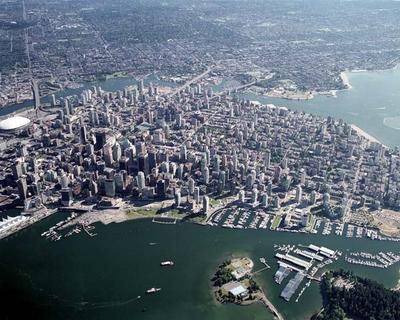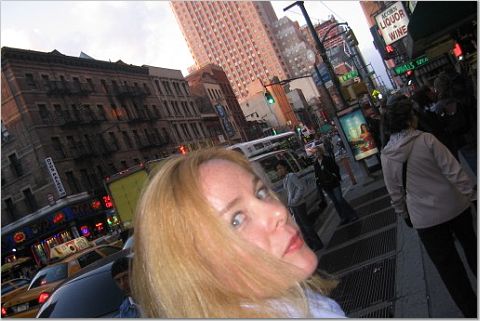
Trevor Body, architecture critic for the
Vancouver Sun, has
an interesting article looking at the way
Vancouver has developed compared to
Lower Manhattan.
Vancouver has eclipsed
Manhattan as the most densely populated residential area in
North America. He offers his hometown as a cautionary tale for
Lower Manhattan, which is currently converting more commercial space to housing (about 8 million square feet) than most other cities have in total, and this doesn’t bode well for the long-term vibrancy of the area, Body argues. It should be a more balanced mix of office and residential, and he believes
Lower Manhattan is on its way to losing this balance, just as
Vancouver already has:
This planner’s paradise – Downtown Vancouver – has exemplary urbanism, a lively social mix, and a high quality of life, all of which make it ever more attractive as … a retirement zone for baby boomers, and much less attractive as a place to conduct business.
…Lower Manhattan and Vancouver’s downtown peninsula share a problem that most North American cities would love to have – too much interest in new downtown housing. [But] it is important to look beyond the current housing bubble to ask whether the wholesale exchange of offices for condos is in the long-term interests of the economic health, even the urbanity and livability of these two cities.
This contrarian viewpoint is one worth considering, but it overlooks the fact that Manhattan has been shifting its center of commerce to Midtown for nearly a hundred years. Does Manhattan need more than one center of commerce, especially given that Brooklyn has also revived its downtown? Vancouver, on the other hand, doesn’t have another commercial core even while it wipes out the one it had in the name of developing a densely populated urbanist paradise (and we all know “paradise” is just another word for “too much of a good thing”).
I’m all for planning – which New York has little of beyond straight-up zoning – but there are always unintended consequences, and it seems that strict planning regulations combined with a housing bubble has created a problem unique to Vancouver. With little in the way of planning regulations and the housing boom about over, Lower Manhattan probably isn’t in much danger of becoming a densely populated residential "paradise" devoid of commerce. But then, who would have thought 15 years ago that million-dollar condos would be built on the Bowery?

